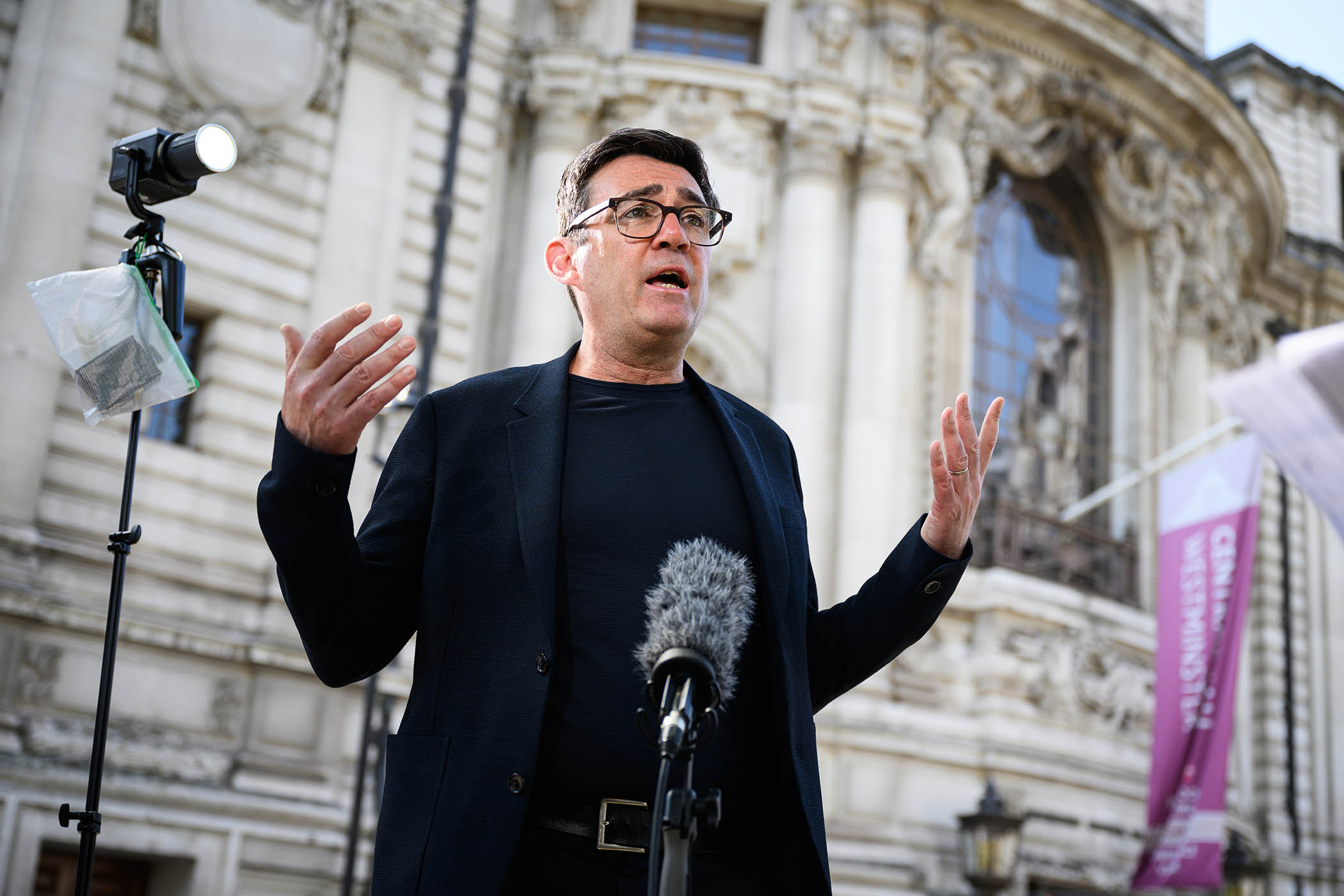It is a symptom of the dreadful pickle the Labour party finds itself in that the man most widely touted to supplant Sir Keir Starmer is not an MP and was passed over on both previous occasions when he applied to be leader. Andy Burnham makes little attempt to hide his desire to have another crack. The mayor of Greater Manchester is circling the prime minister like a peckish bird of prey eyeing up a rotting hunk of carrion. He is not the only pretender to the throne, but he is by far the most obvious about it. While he’s manifestly popular with a lot of Labour folk, admiration wanes when you talk to people in the party’s upper ranks. During an earlier period of Burnham manoeuvres, another of Labour’s mayors sardonically remarked to me: “If you know Game of Thrones, you’ll remember what happens to the King in the North.”
For those not acquainted with the sorcery-and-skulduggery epic, the King in the North marches southwards to seize power, only to be ambushed at a wedding and assassinated. With words as their arrows, Starmer loyalists are slagging off the Burnham prospectus for “aspirational socialism” as an opportunistic, naive and dangerous wishlist of leftish fantasies. Even if they have a point, these attacks are misguided because they make the prime minister’s people sound rattled and defensive.
Better, perhaps, to ask how a Burnham ascendancy is supposed to come about. There would have to be a byelection to get him back into parliament after an absence of more than eight years. The seat would have to be winnable and the party’s National Executive Committee would have to allow him to be the party’s candidate – which would entail sanctioning a costly and risky emergency contest to replace him as mayor. If he made it to the Commons, he would then need the support of at least 80 Labour MPs to mount a leadership challenge. During the long and bitter weeks that this would be playing out, the bond markets might have something awkward to say about our Andy’s suggestion that he’d rip up the fiscal rules. After making the leap of imagination necessary to see him as prime minister, and given his repudiation of much of the manifesto on which Labour took office, he’d then face monumental pressure to call a general election. “Labour MPs may be fed up with Keir,” says one party strategist. “But they are not turkeys who will vote for Christmas.”
I don’t think it fanciful that Mr Burnham could be Labour leader one day. I do think it a stretch to believe that this will be one day soon. Some of those blowing air into his balloon secretly agree that it is not viable. For the enemies of Sir Keir, to both left and right, pumping up the mayor of Manchester is a device to destabilise the prime minister.
Not that they really need to bother when he is already mired in so much trouble. “Morale among Labour MPs is at rock bottom, because we can’t see a way out,” says one of their number. The cut to the pensioners’ winter fuel allowance, the messy U-turn, the traumatising welfare revolt, losing both Angela Rayner and Peter Mandelson to scandal, and a reshuffle that ignited fury even among some of those who retained ministerial jobs – these have all wreaked damage. His personal ratings are about as dismal as Rishi Sunak’s score on the way to taking the Tories to the worst defeat in their history. To further darken the mood at this week’s Labour conference, there is the looming November budget, which ministers expect to involve seriously nasty choices.
The setbacks and reverses of politics are easier for parties to endure and voters to tolerate when they are confident that the leader has a project that will ultimately bear fruit. Sir Keir has always been hugely reluctant to define Starmerism and is paying a price for being unwilling or unable to delineate his credo. Fifteen months into his premiership, neither his party nor his country is clear who he is in politics to fight for. His conference speech will build on an address he delivered on Friday, which portrayed the struggle of our times as a battle between his “patriotic renewal” and “the politics of predatory grievance” peddled by Nigel Farage. Nothing terribly wrong with that framing, but only so long as people are persuaded there is some renewal going on.
The mayor of Greater Manchester is circling the prime minister like a peckish bird of prey eyeing up a rotting hunk of carrion
The mayor of Greater Manchester is circling the prime minister like a peckish bird of prey eyeing up a rotting hunk of carrion
While it has some achievements it could shout about, this government somehow never seems to add up to the sum of its parts. When I put this point to members of the cabinet, I am often greeted with wry sighs of agreement. Says one secretary of state: “The weakness has been more about politics than policy.” This is partly because Number 10 is often strangely hesitant about making its case with conviction and panache. Polling for the thinktank IPPR suggests that less than a third of voters know this government has legislated for the greatest strengthening of workers’ rights in a generation, and less than a quarter are aware that it has given new rights to renters. One senior Labour MP complains that even when they do radical things “we then hide them”.
The American writer Joe Klein put it well when he remarked that politics is often “the art of competitive storytelling”. It doesn’t help that Sir Keir and Rachel Reeves, the government’s two most important figures, aren’t natural storytellers. “Where are we going? What’s our North Star?” asks one Labour veteran. “People would be more reassured if they thought there was a plan, but they don’t think there is a plan.” Talking about the leader’s conference speech, one long-time ally of the prime minister remarks: “Just saying we’re making progress won’t cut it.”
Sir Keir badly needs to counter the corrosive narrative that he is continuity Sunak, an intelligent yet hapless technocrat who aspires to do the right thing, but lacks the charisma to inspire and is overwhelmed by the scale of the challenges.
To dispel the impression that his government tacks right one day and left the next in reactive response to events and opponents, he needs to articulate his values and purpose much more persuasively. He’s got a lot of convincing to do that he is helming the country to an attractive destination. And he must supply the precious commodity that is so painfully absent from our national conversation. Both his party and his country are in desperate need of some hope.
Newsletters
Choose the newsletters you want to receive
View more
For information about how The Observer protects your data, read our Privacy Policy
Photograph by Leon Neal/Getty Images



